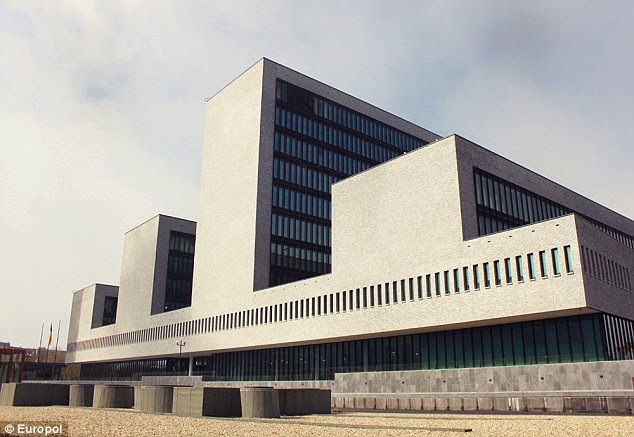Organized Crime Crackdown Called Europe's Largest Ever
 |
| The Hague: where the intel is coordinated. |
And, for once, the Mafia didn't warrant a single mention! Don't know which news is bigger!
Operation Archimedes targeted crimes ranging from drug trafficking to illegal immigration, tax fraud, counterfeiting and theft, Europol director Rob Wainwright told reporters.
The Daily Mail Online noted, however: "Arrests were concentrated on criminal middlemen and go-betweens, as crime kingpins are not typically caught in sweeps but in operations designed to ensnare them."
The operation involved 20,000 law enforcement officers in more than 300 cities, ports, airports and border crossings. They made 1,027 arrests and saved 30 Romanian children from being trafficked. It also netted large amounts of drugs including hundreds of kilograms of cocaine and heroin, Wainwright said.
Intelligence gained in the operation, which involved a coordination center at Europol's headquarters in The Hague directing the raids, means future arrests are likely.
The raids underscored how criminals across the EU and beyond are organizing their efforts, often using heavily encrypted Internet messages to communicate.
"3,600 criminal syndicates are now active across the continent."
Law enforcement officers from all 28 EU member states have worked with Interpol, border agency Frontex and officials in countries including the USA, Colombia and Switzerland.
“Operation Archimedes is a milestone in attempts by the law enforcement community to deliver concerted action against organised crime groups in Europe,” said Rob Wainwright, director of Europol.
Story continues below infographic....
“The scale of the operation is unprecedented and the outcome, with over 1,000 arrests made across Europe, a reminder to even the most serious criminal groups that the international law enforcement community is determined to combat their illegal activities.”
In total, 1027 arrests were made between September 15 and 23, during which 1.3 tons of cannabis were seized along with 800kg of cocaine and heroin.
Over 250 arrests were made for facilitating illegal immigration and trafficking of human beings. Other crimes targeted including the production of counterfeit goods, firearms trafficking and tax fraud, including the so-called carousel fraud of avoiding VAT payments.
Targeting organised criminal groups and their infrastructure, the probe monitored the internet as a facilitator for crime, and the illicit movement of criminal proceeds using money transfer systems.
Wainwright said Europe’s black market in counterfeit foodstuffs, pharmaceuticals and machine parts doubled to a value of about €2bn in the early years of the recession.
These groups are profiting from an increased demand for cheap goods and finding ways to cash in on EU member states’ attempts to boost tax revenues.
“[Organised criminals] are operating in multiple criminal sectors, in multiple jurisdictions, they’re highly international in their nature,” Mr Wainwright said. “Some have 60 or more nationalities among their membership. So these are themselves multinational companies.”
While the trade in counterfeit luxury goods such as Gucci handbags and high-end champagnes was thriving even before the financial crisis, Europol noticed a boom in illegal sales of a wide range of products, including fake aircraft engine parts, as the recession took hold.
Declining spending power increases social tolerance for the black market economy, the Europol director said.
Other recessionary crime trends identified by Europol include an increasing willingness by companies to cut costs by using illegal labour, which has led to breaches of minimum wage guidelines and fuelled people-trafficking networks in more extreme cases.
Criminals are even making gains from governments’ attempts to recover from the crisis: the decision by some member states to raise VAT has spurred a growth in fraudulent VAT claims which used to be concentrated on electrical products to a much wider range of goods over a bigger range of EU countries.

Comments
Post a Comment